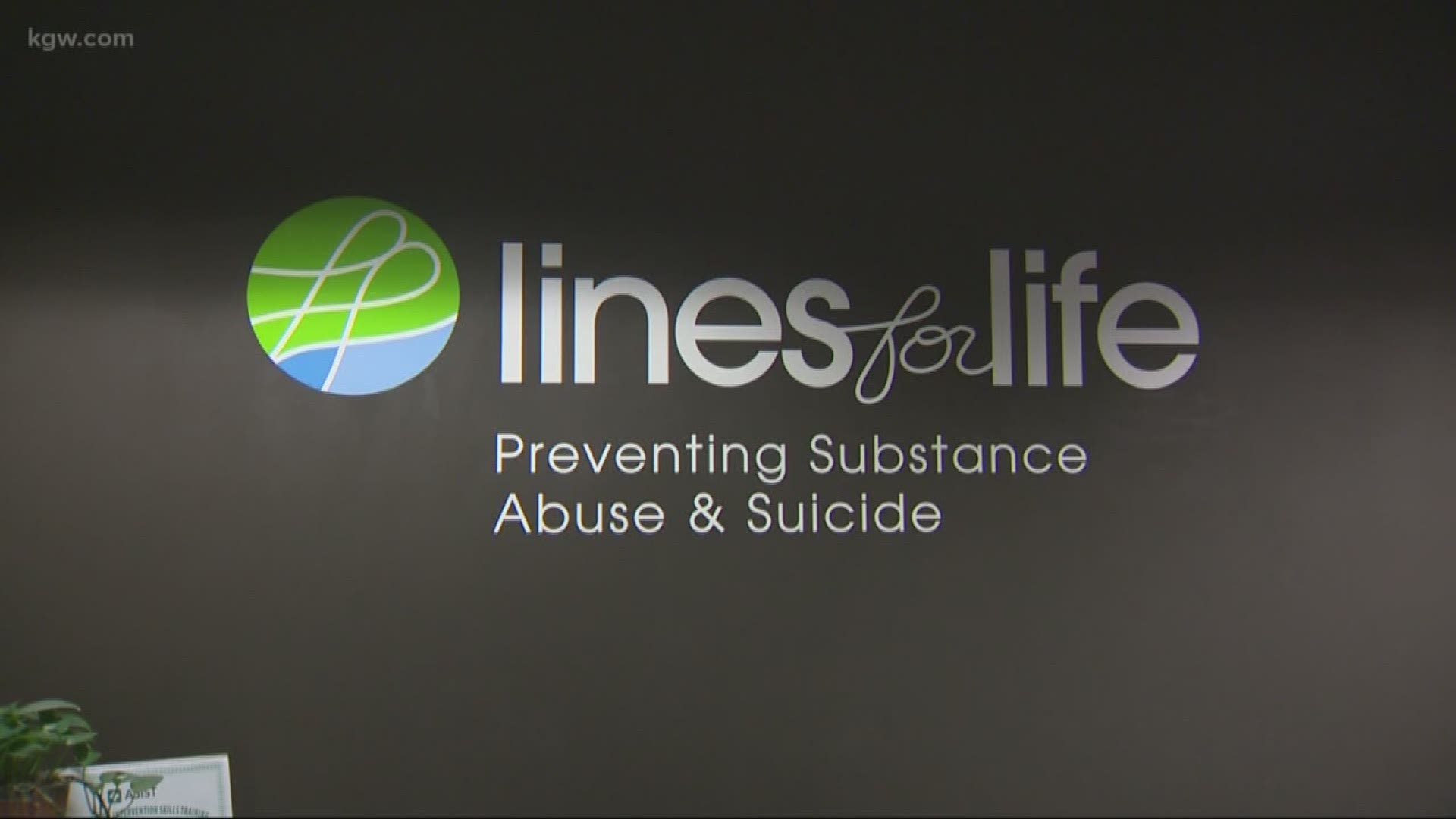PORTLAND, Ore. — Three people linked to school shootings have apparently taken their own lives in recent days.
Their deaths are putting a national spotlight on survivors' guilt for those who survive mass shootings. Their deaths are also putting a spotlight on suicide and prevention.
That's an especially important conversation here in Oregon, which has a suicide rate above the national average.
On Monday, the father of a Sandy Hook school shooting victim was found dead in an apparent suicide. That came days after two Marjory Stoneman Douglas High School survivors apparently took their own lives.
"All suicides are a tragedy and most suicides are preventable,” Lines for Life YouthLine crisis line director Emily Moser told KGW.
Portland-based nonprofit Lines for Life pushes to prevent tragedy. They work to prevent suicide through education, training and awareness while de-stigmatizing mental health and mental illness across all ages.
Moser said it's important to talk about suicide in an appropriate way, being cautious not to glamorize or over-dramatize.
"The more we talk about it, the more progress we make,” she said. “Promoting messages around hope and healing and promoting messages around being able to reach out for help when you need it.”
By talking about it, we work to de-stigmatize it. By treating mental health like we do physical health, open conversations and open minds are fostered.
"That, in the end, can hopefully help everyone understand that it's really OK to reach out for help if you need it and it's really OK to help someone,” Moser said.
While there are traumatic events that complicate someone's well-being, there's not one factor that would lead to someone taking their own life. There are different risk factors and contributing factors potentially leading someone to a place of helplessness and hopelessness.
Spreading awareness and education helps people struggling feel more comfortable asking for help. Moser said we all need to recognize what are known as "invitations."
"There are signs and things we can see that means somebody is potentially giving us an opportunity to reach out a hand, and ask someone if they need help," she said.
Among others, some signs include giving away prized possessions, behavior changes that seem extraordinary, isolation, and talking about suicide and death.
Don't be afraid of mental illness, and ask loved ones directly if they're thinking about taking their own life, making sure they know how much you care about them, experts say.
The other side is knowing yourself and recognizing when to reach out.
"You're not alone and there are people all over the United States and here in Oregon that want to help you. And use them,” Moser said.
Media outlets around the state are discussing this topic in a joint project the week of April 8. More information will follow in coming days.
Resources
Help is available for community members struggling from a mental health crisis or suicidal thoughts. Suicide is preventable.
The Multnomah County Mental Health Call Center is available 24 hours a day at 503-988-4888.
If you or someone you know needs help with suicidal thoughts or is otherwise in an immediate mental health crisis, please visit Cascadia or call 503-963-2575. Cascadia Behavioral Healthcare has an urgent walk-in clinic, open from 7 a.m. to 10:30 p.m., 7 days a week. Payment is not necessary.
Lines for Life is also available 24 hours a day at 1-800-273-TALK (8255).
Information about the Portland Police Bureau's Behavioral Health Unit (BHU) and additional resources can be found by visiting http://portlandoregon.gov/police/bhu

